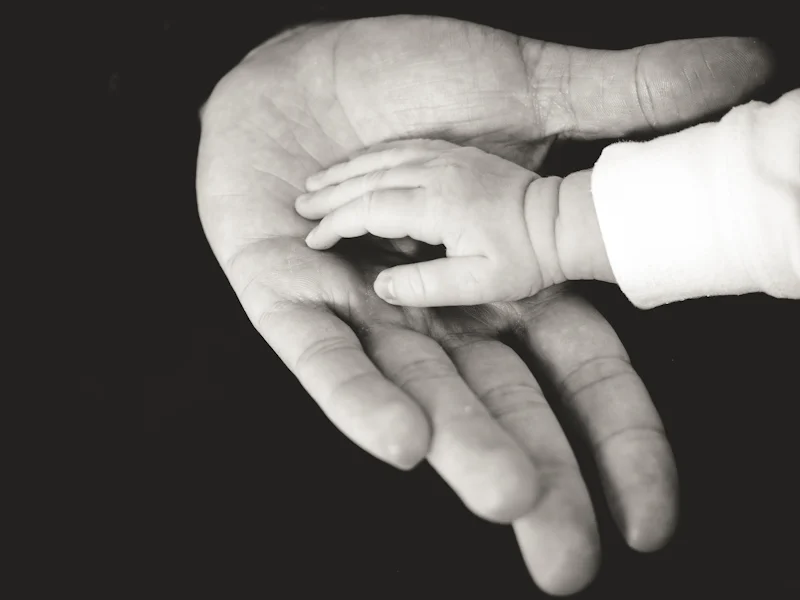Keeping your newborn baby safe is an issue that I spend lots of time discussing with my clients. Midwifery isn’t just about pregnancy and birth, it’s also about creating families. I aim to help you to start out as a family feeling confident. Very often in my time as a midwife I have met people who have spent huge amounts of time and energy preparing for the birth, but haven’t really given any thought or done any preparation for life once their baby is here. I know it is almost impossible to imagine that new life, but you can certainly make your life easier by doing some reading and preparation before baby is born. It’s hard to read or learn new things when your life has just been turned upside down! One of the most fundamental issues to think about in advance is keeping your newborn baby safe.
An issue to think about is how you can keep your baby safe from infections. There are some very simple steps you can take. Your baby needs time to develop their immune system after birth. We need to limit the number of germs they meet in the early days. Washing your hands is one of the simplest and most important aspects of keeping your newborn baby safe. Everyone handling a new baby should wash their hands first. We mustn’t forget how lucky we are in the UK that most people have easy access to soap and water. If you haven’t read about my experiences in a very different situation you might be interested in this https://yourmidwife.org.uk/blog/midwife-in-malawi-part-7-hygiene-and-handwashing/.
The baby’s immune system is central to keeping your newborn baby safe. Your baby will be born with immunity to certain infections, because of immune factors being passed through the placenta. This is why whooping cough vaccine is suggested in pregnancy- it is to protect baby, not you! https://www.nhs.uk/pregnancy/keeping-well/whooping-cough-vaccination/. Not all antibodies can pass through the placenta however, and so baby needs to have the opportunity to develop their own. We know that colostrum and breast milk are fantastic at passing on immunity and also help the gut to be resistant to viruses and bacteria. I have had clients who have initially chosen not to breast feed, but have chosen to express and give colostrum in the first couple of days in recognition of the immunity benefits that formula milk simply can’t match. https://www.infantrisk.com/content/antibodies-immune-system-breastfeeding-basics. These are conversations and ideas that I feel should be explored before baby is here.
Skin to skin contact with you in the early hours and days of life allows baby to gain external protection relevant to your home and family. I’ll write more about this another day.
The Lullaby Trust is an excellent source of information and advice and I recommend every parent to explore their website. They have recently released this short video which addresses the issue of people wanting to touch and kiss your baby. They even offer a tag you can attach to your pram.
Another very valuable resource from the Lullaby Trust is the Babycheck app. This is a simple tool designed to help you assess your baby if you think they may be unwell. I advise all my clients to download it before baby is born. Obviously as a parent you are very focused on keeping your newborn baby safe, but at 3am it can be very hard to decide if something is serious or not. The app asks a series of questIons and takes you to advice about what to do next. If it advises that the symptoms are serious and need urgent medical attention do you know where your nearest children’s A&E department is? Such departments are open 24 hours a day and you can go there without an appointment if you are worried that your baby is seriously unwell. However, A&E is for Accidents and Emergencies, so the app may also suggest making an appointment with your GP. It may also give you reassurance that the symptoms you are noticing are not currently cause for concern. https://www.lullabytrust.org.uk/safer-sleep-advice/baby-check-app/
Another aspect of keeping your newborn baby safe is to think about what you would do if your child hurt themself or had an accident. I think everyone should do at least basic first aid training, and becoming a parent is a very good time to learn some skills. There are some great courses available, which help you to learn the skills without frightening you. Many of my clients like to use a trainer who will come to their home and do the training for them and their immediate family. Other people like to go to a more formal course. Two local providers in Sussex are Mini First Aid and Daisy First Aid. Mini First Aid also offer a baby proofing session to prepare your home for you baby becoming mobile. https://sussex.minifirstaid.co.uk/classes/classes-for-parents-carers and https://www.daisyfirstaid.com/parent-first-aid-course-and-classes/family-and-carer-classes-2-hours/

